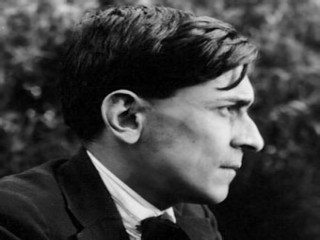
José Carlos Mariátegui biography
Date of birth : 1895-06-14
Date of death : 1930-04-16
Birthplace : Lima, Peru
Nationality : Peruvian
Category : Historian personalities
Last modified : 2011-08-10
Credited as : Writer, political and social theorist,
The Peruvian writer Jose Carlos Mariategui was one of the most influential political and social theorists of his country in his time. He exposed in intense, probing essays many of the problematic aspects of Peru's cultural, social, and economic life.
Jose Carlos Mariategui was born on June 14, 1895, in Lima. As a child, he was introverted and meditative, owing in part to having been invalided for years by an injury which eventually resulted in the loss of a leg. During his young manhood he wavered between accepting life passively and aggressively imposing his nonconformist will on the world about him. This conflict was decided when Mariategui, an avid reader of all types of writing, came across the work of the Spanish socialist Luis Araquistan.
Mariategui was now stirred to witness socialism in action. He made a lengthy and significant visit to Europe, where, particularly in Italy, he was exposed to socialist theories and practice. On his return to Peru, he found the country seething with proposals for nationalist reform. Along with other young idealists—all followers of the programs laid down by fellow countryman Manuel Gonzalez Prada—Mariategui gave vociferous support to such issues as the defense of the Indian and wide-sweeping reform in political as well as social spheres.
In 1924 the APRA (Alianza Popular Revolucionaria Americana) movement was instituted, and in 1926 Mariategui founded the magazine Amauta, which came to be the principal voice of the leftist APRA rebels. Striking out on his own in 1928, Mariategui was instrumental in the founding of the Socialist party of Peru, supported mainly by middle-class adherents and characterized by a specifically Marxist-Leninist line.
In 1925 Mariategui published his first book, The Contemporary Scene, a group of essays written on a wide variety of issues, such as the crisis of democracy, anti-Semitism, fascism, and the Indian problem. Much more influential, however, was his second work, Seven Essays on the Interpretation of Peruvian Reality, published in 1928. Professor Solomon Lipp stated that the Seven Essays "did much to channelize leftist thought in Peru," adding that these essays "constituted an incisive, penetrating analysis of the nation's cultural and economic life."
The topics treated by Mariategui in this treatise are varied and far-reaching: the role of religion in Peru's history; the effect of colonial feudalism on the country; economic development; the problem of the enormous imbalance between the nation's urban and rural areas; the place of the Indian in Latin American society; and the questions of education and the need for university reform constitute the subjects of six of the essays.
The seventh essay deals with the manner in which the country's social structure has influenced the literature produced by Peruvian writers. Largely as a consequence of this fresh examination of the sources of literary expression, Mariategui was able to contribute significantly to a critical evaluation and reorientation of his country's literature.
Though Mariategui lived only two years longer, his message had been heard. His death on April 16, 1930, in Lima, did not still the urgings of his socially aware conscience. He remains today one of the most important voices of reform to have been raised in Latin America.
















